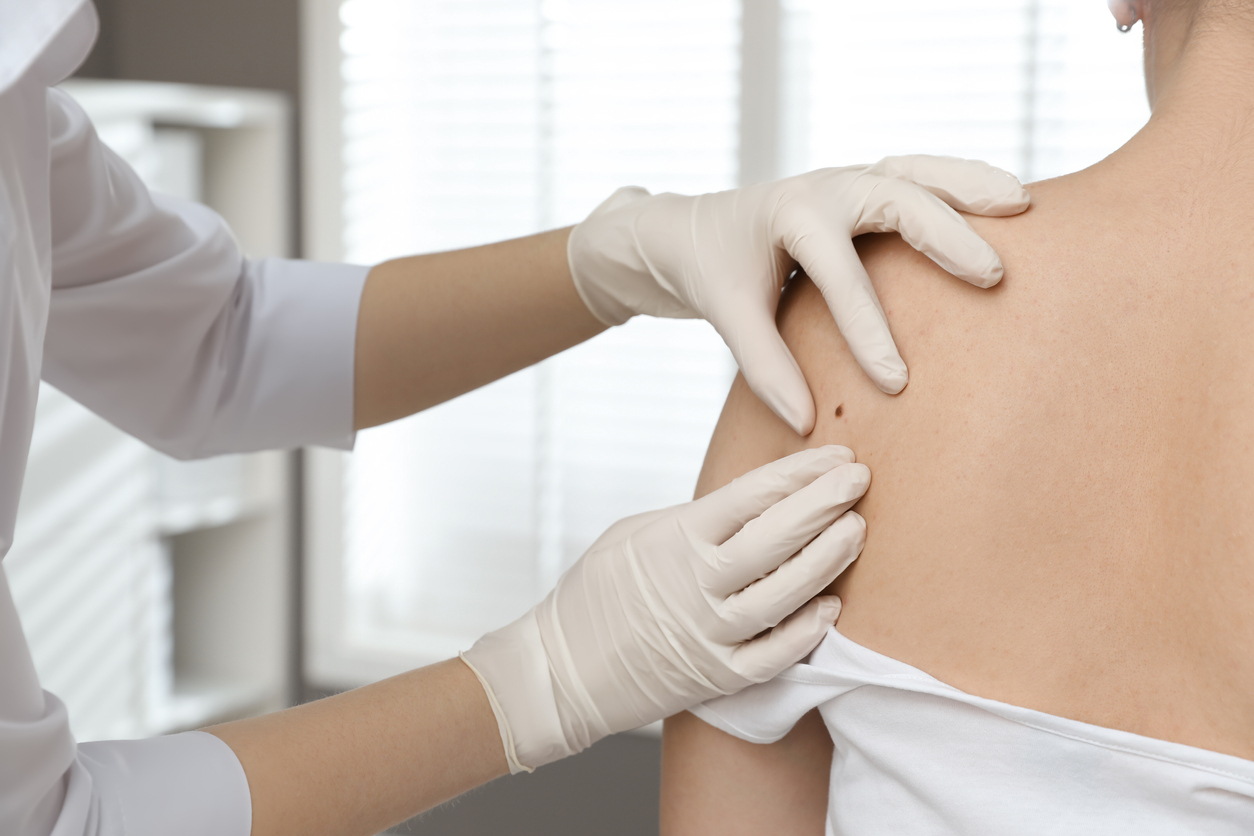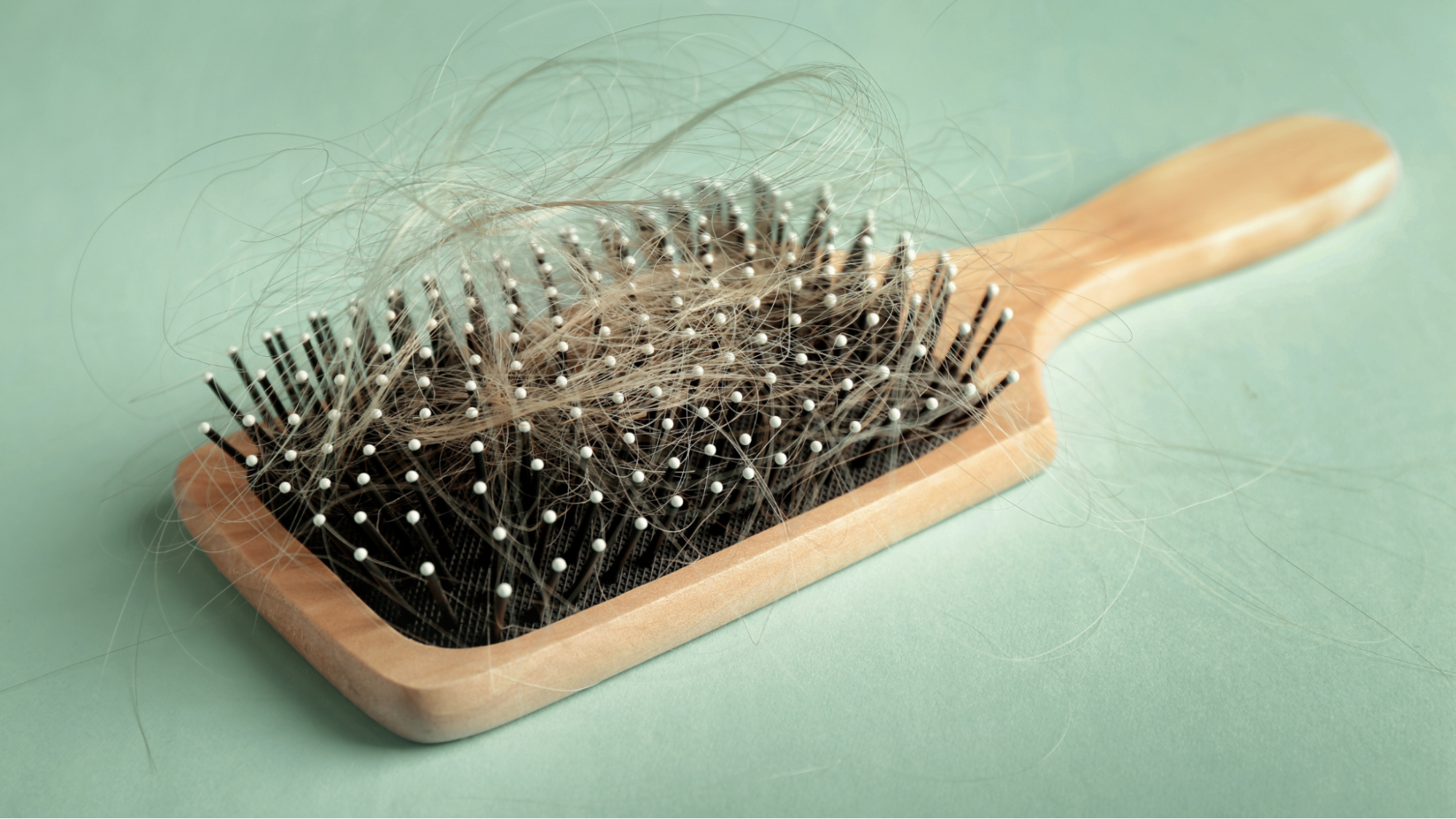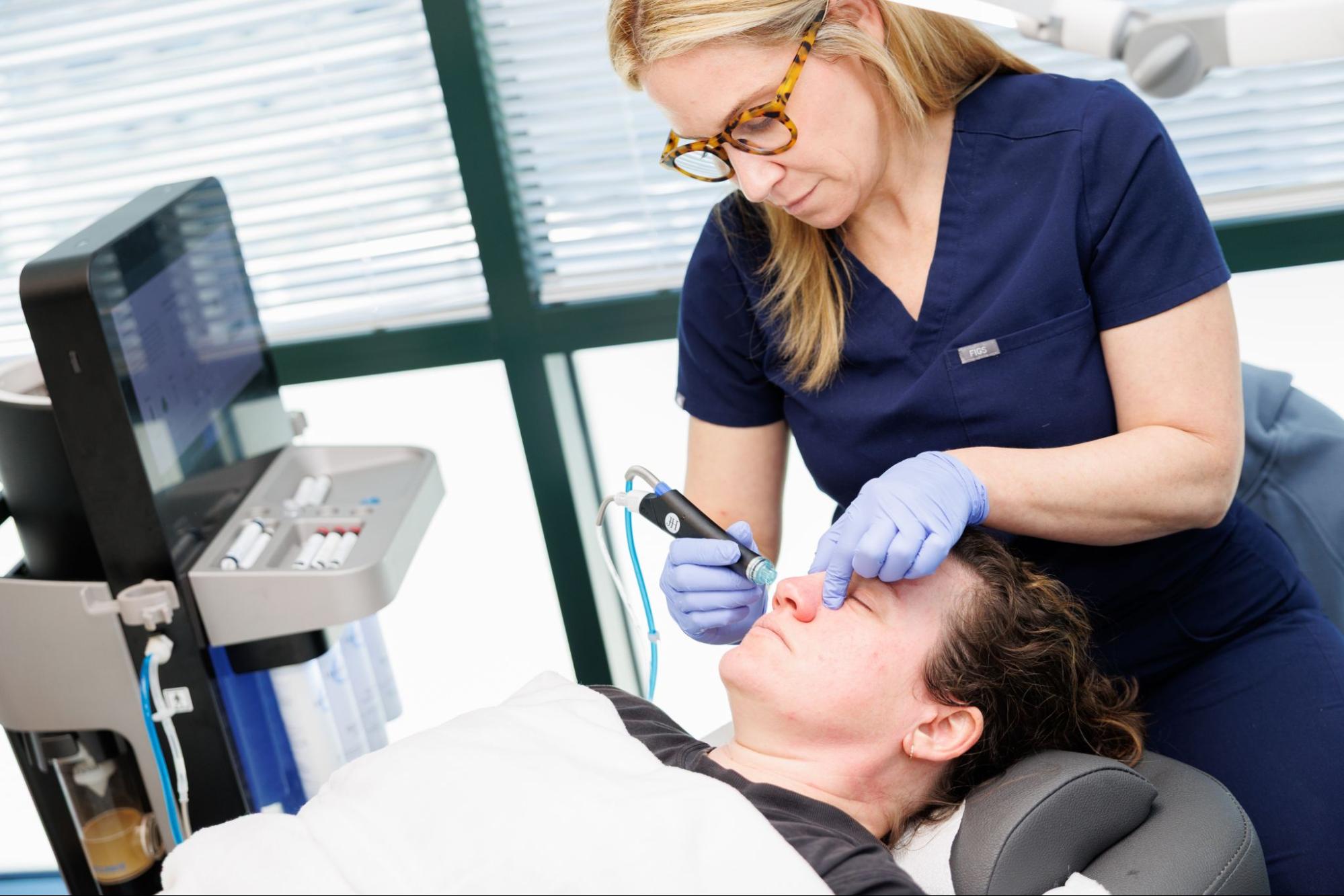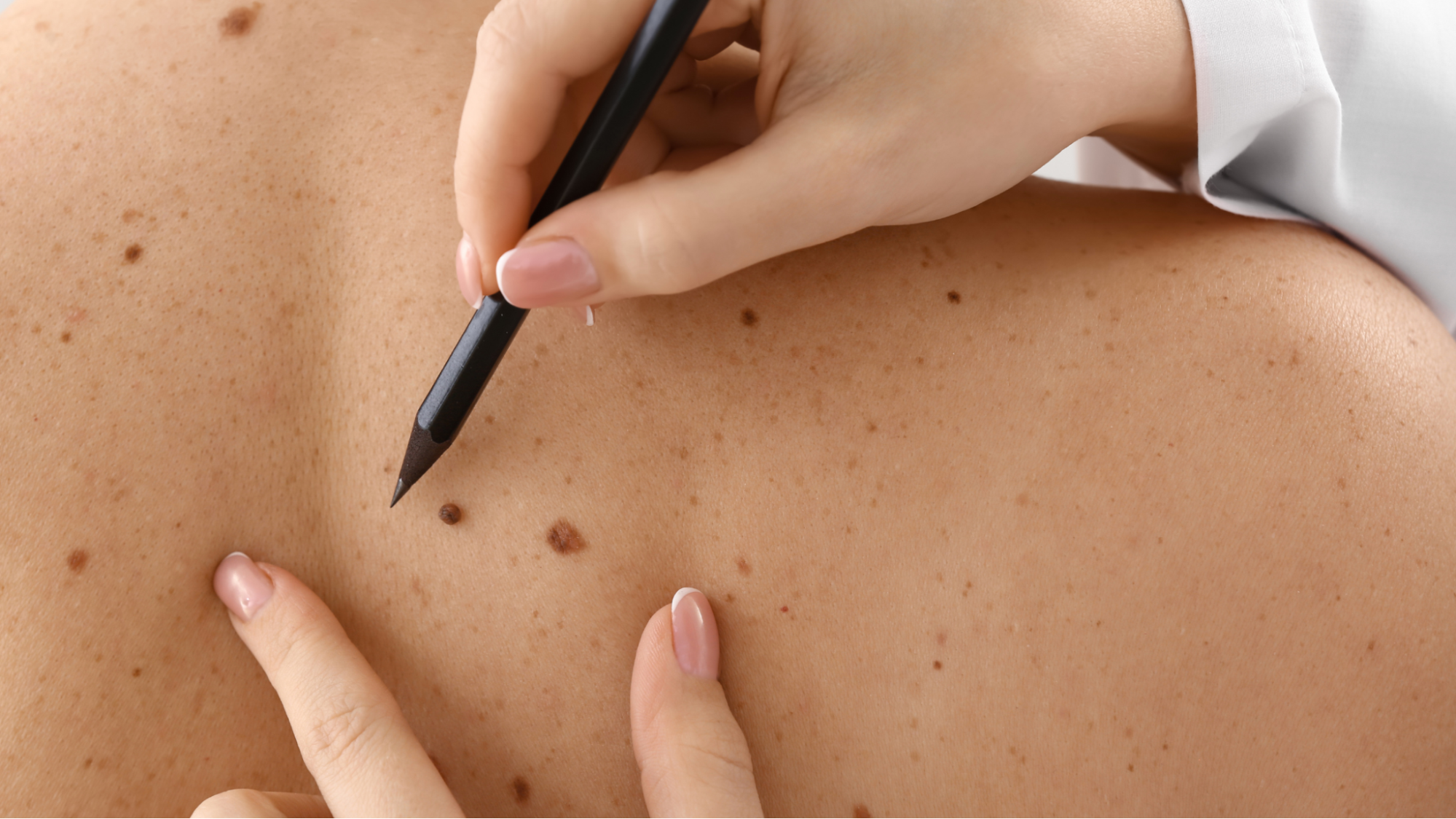One of the most important aspects of our practice at Georgia Skin Specialists is skin cancer screening and detection. This is a simple, painless procedure that can potentially save lives by catching skin cancer in its early stages when it is most treatable. It’s estimated that one in five Americans will develop skin cancer in their lifetime, but the good news is that if caught early, skin cancer is highly treatable. That’s why regular skin cancer exams and screenings are so important.
What is Skin Cancer Screening?
Skin cancer can develop anywhere on the body, and it can appear as a new growth, a sore that does not heal, or a change in the appearance of an existing mole or lesion. During a skin cancer screening, a dermatologist will examine your skin from head to toe, looking for any suspicious moles or lesions. The exam is done in a private room with good lighting, and you will be asked to remove all clothing except for your undergarments. You will be given a gown to wear and a sheet to cover yourself with.
The Examination
Our board-certified dermatologist will start by examining your scalp, face, neck, and ears. They will then move on to your arms, hands, and underarms, and then examine your chest, abdomen, back, and legs. A special magnifying glass, called a dermatoscope, will be used to examine any moles or lesions that look suspicious. The dermatoscope allows the dermatologist to see the mole or lesion in greater detail, which can help them determine if it is cancerous or not.
If your dermatologist sees a mole or lesion that looks suspicious, they may decide to perform a biopsy, which involves taking a small sample of the mole or lesion and sending it to a laboratory to be examined under a microscope. This is the only way to determine for sure if a mole or lesion is cancerous.
It is important to note that not all moles or lesions that look suspicious are cancerous. In fact, the majority of moles and lesions that are biopsied turn out to be benign (non-cancerous). However, it’s better to be safe than sorry when it comes to skin cancer. Catching skin cancer in its early stages is crucial for successful treatment.
Post-Screening Discussion
Skin cancer screening is not just for people who have a history of skin cancer or who have a lot of moles. Anyone can develop skin cancer, regardless of their skin type or family history. However, certain factors can increase your risk of developing skin cancer, including:
- Having fair skin, freckles, or red or blond hair
- Having a history of sunburns or excessive sun exposure
- Having a family history of skin cancer
- Having a weakened immune system
- Using tanning beds
- Taking certain medications, such as immunosuppressants or chemotherapy drugs
If you have any of these risk factors, it is especially important to get regular skin cancer screenings.
Prevention
In addition to getting regular skin cancer screenings, there are other steps you can take to protect your skin from the sun and reduce your risk of developing skin cancer. These include:
Limit exposure to UV radiation
- Stay in the shade when the sun is at its strongest (between 10 am and 4 pm).
- Wear protective clothing such as long-sleeved shirts, pants, hats, and sunglasses.
- Use sunscreen with at least SPF 30 and reapply every two hours, or more frequently if sweating or swimming.
Avoid tanning beds and sunlamps
- These emit harmful UV radiation that can damage your skin and increase your risk of skin cancer.
Check your skin regularly
- Perform self-exams to look for any changes in your skin, such as new moles, changes in shape or color, or any other unusual marks.
- If you notice any changes, make an appointment with your dermatologist.
Be aware of your skin type and history
- People with fair skin, light-colored eyes, and a history of sunburns or skin cancer are at a higher risk for developing skin cancer.
- If you have any of these risk factors, take extra precautions to protect your skin.
Live a healthy lifestyle
- Eating a healthy diet and staying physically active can help boost your immune system and reduce your risk of skin cancer.
- Avoid smoking and excessive alcohol consumption, as these can also increase your risk of developing skin cancer.
For questions on skin cancer prevention and regular screenings, please contact our office or book an appointment online by clicking below.







